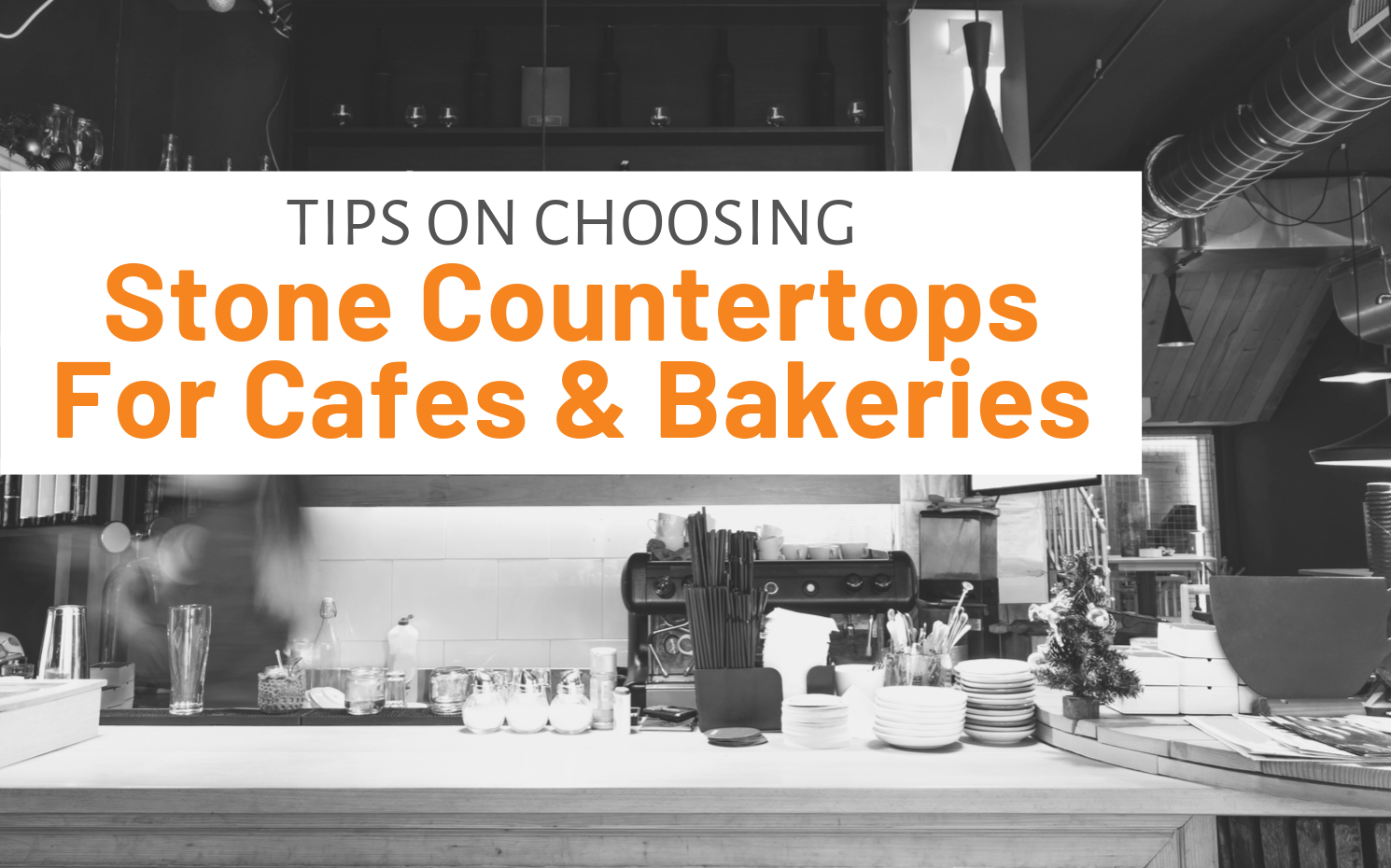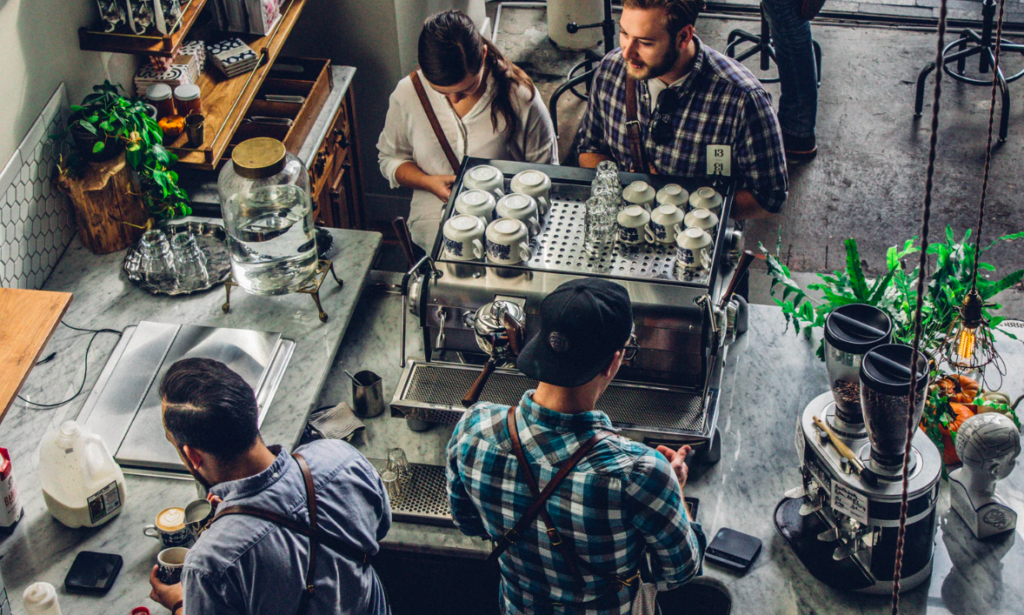Are you remodeling a bakery or a cafe, or starting the business for the first time? Are you in the middle of construction, Googling countertops, your brain whirling from stressing about the pros and cons of each option?

Well then, you’ve landed on the right page. Let’s examine three different stones (granite, marble, and quartz) and discuss the design implications and the pros and cons of each. Ready? Then let’s get to it!
What look are you going for?
The first question you need to ask is: what look am I trying to achieve? This narrows down the options tremendously. Plus, the first thing your customers eat with is their eyes. In a bakery or cafe, this isn’t just about making the food look good. It’s also about the room. If the room isn’t appealing, how can they trust that the food will be any better? It’s a little weird to imagine a customer eating the room with their eyes, but that’s what it essentially comes down to.
So, you want the room to be clean, the ambiance to be appealing, and perhaps the feel to be just a little hipster. You could go in many directions. Sleek, dark, bold. Soft, feminine, with bright pops of color. And anything in between. Let’s look at how these three stone countertops fit with your particular design.
Granite
Granite is a classic. Since it comes in so many colors and natural patterns, it’s easy to fit into a design scheme. If you’re going for an industrial look, black granite with sweeping streaks of white might be just what you need. If you have a lot of wood tones and metal accents but want to lighten up the space, you might choose a light cream colored granite. And for something completely unique, you can always choose a funky green or brown granite with lots of character.
Marble
Marble, the most elegant of all stones. What’s fun is that you can go elegant or rustic with it. If your cafe or bakery is predominantly rustic, farmhouse, or industrial, you might use the “opposites attract” rule and choose an elegant marble. And of course, if you’re creating a boutique feel, marble is always the right choice.

Quartz
Quartz is all about versatility, in more ways than one. Since quartz is an engineered stone, it can be dyed any color of the rainbow and more. However white quartz is the most popular. White instantly lightens up the space, and there are options even with a plain white quartz countertop. It can be sleek and shining, reflecting the light and brightening the room, or it can have a matte effect. We especially like the idea of a matte effect on dark charcoal colored quartz, because at first glance it mimics the look of concrete.
How much wear and tear will the countertops deal with?
A customer can be uncomfortable sitting at a bar or table simply if the countertops not made of durable material and are stained or chipped. Here are a few pros and cons of our “big three” so you can determine which is best for your cafe or bakery.
Granite
Durable, yes. Minimal upkeep? Not so much. Granite needs to be sealed regularly, anywhere from every three months to a year. It also depends on whether the granite is dark or light. For a high-traffic area like bar seating or tables, this may be a deal-breaker. However, if your willing to take the time to seal the stone, it can still be a great choice. Plus it’s pretty easy to repair if cracks or chips occur.
Marble
Marble is one of the softest stones around. This means it needs as much or more maintenance than granite. Remember, people are going to be dropping utensils, spilling their coffee, and placing hot plates on the tables and bar countertops. It may not work for you as a countertop for the main seating area, but that doesn’t mean you couldn’t use it in other places around the room.
Quartz
Quartz! The durability queen of the stone countertop world. There isn’t much you can’t do to a quartz countertop. It doesn’t need to be sealed, yet it resists stains, chips, and cracks. To a point, it is also heatproof, and hot plates wouldn’t be a problem. But the best part? Since it is engineered, rather than natural, it is far less porous than granite and marble and is extremely sanitary. About the only thing that we can point out as a con is that it is very hard to repair if it does get a crack, but this is unlikely since it is so durable.

Countertops are the most important part of a restaurant – other than the food
So what will you choose? Which stood out to you as the most likely to suit your business’s needs? If you still need a few pointers, this article goes even more in-depth. Choose wisely, but remember, have fun! Your customers will thank you for it.

Recent Comments